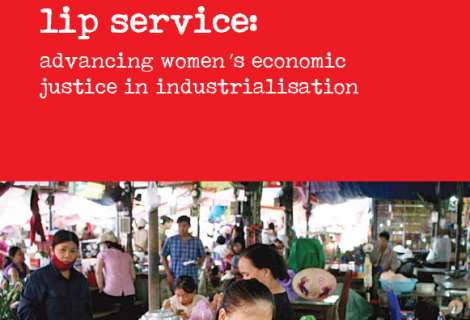
This report sets out an alternative for economic transformation underpinned by a rights-based, progressive version of industrial policy that respects and advances women’s rights. While it offers the experience of industrialisation of East Asian countries as a case study, it cautions policy makers against following in the footsteps of Japan, Korea and Taiwan by worrying first about economic growth at any cost and addressing gender inequality later. Today these countries still face the economic, political and social consequences of gender unequal labour markets.
Through case study research on Vietnam, we look at the potential for countries at an earlier stage of industrial development to take a different path. Vietnam’s current industrial strategy resembles that of South Korea and Taiwan, in that it has successfully set itself up as a manufacturing hub over the last three decades. Interestingly, the country has a series of laws and strategies to close the gender gap, with explicit targets to tackle women’s economic inequality. We shall thus analyse the extent to which Vietnam’s industrial policy is gender just and make specific recommendations on ways of breaking silos between economic development policies and gender equality policies.